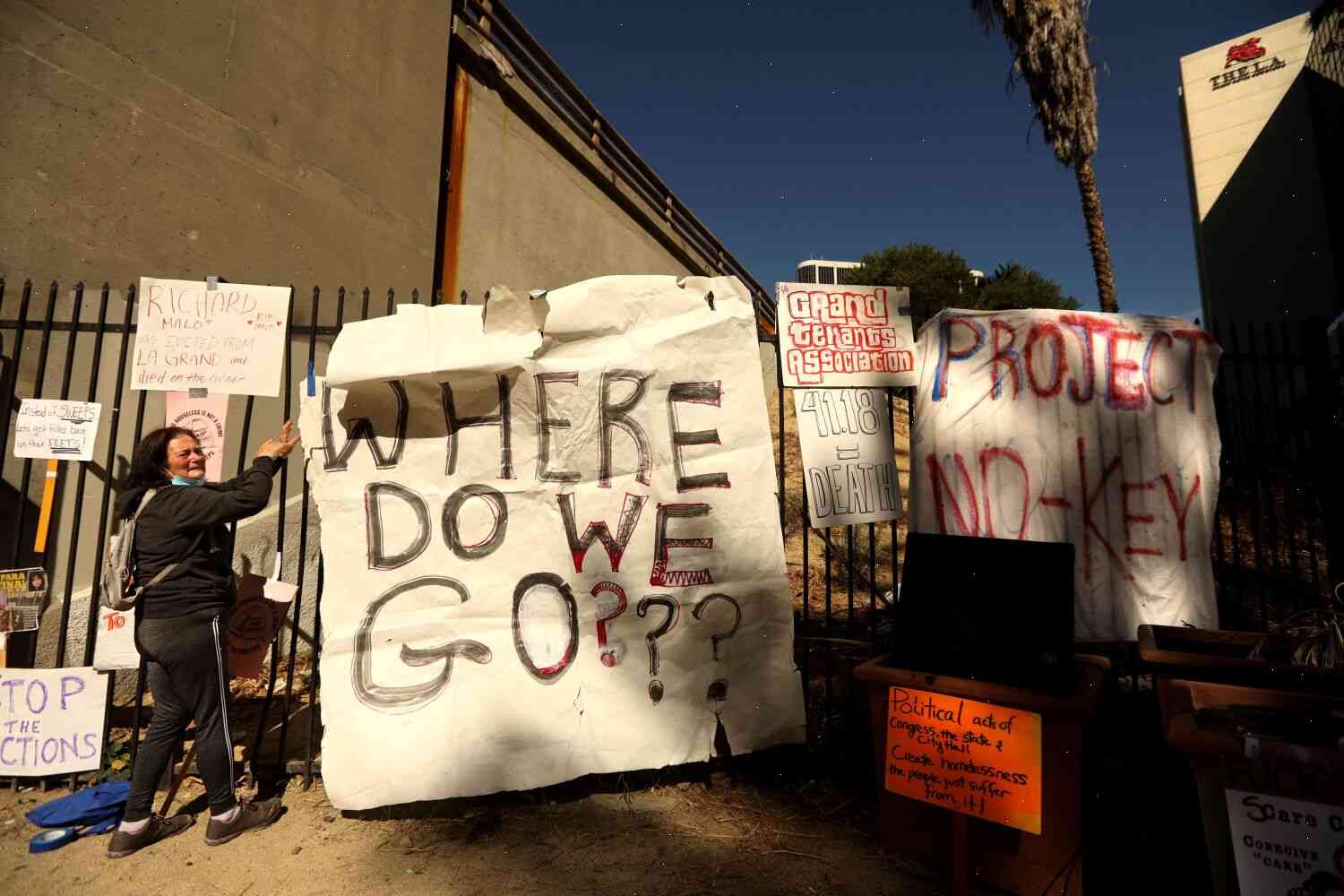Column: Fed up with failed leadership, L.A. voters backed mansion tax to help the homeless. Will it work?
In the end, voters did not back the mansion tax because of an issue other than homelessness and social inequity.
It was a vote against the system.
In a low-turnout election, a few hundred homeless people at a time turned out on an otherwise sleepy day to cast their votes during a state Assembly district meeting in Carson on April 30.
A week earlier, homelessness had reached a tipping point after the governor, Jerry Brown, called for a massive $50 million citywide housing project for the homeless.
The response was immediate.
Hundreds of Angelenos rallied around the homeless on the first night of the new year.
“In our neighborhood, we have a very homeless problem,” said council member Natalina Rolón, who was the first to voice her support for the mansion tax. “Many people are living in cars, and I think we have to act quickly.”
She quickly found that backing the $250-million mansion tax in the state Legislature, the largest tax increase in two decades, had already been the subject of numerous debates and protests.
She says the biggest opposition came from the Council of State Governments, some of the largest elected officials in the country.
“They want to keep the city out of business,” Rolón said. “They want to keep the homeless under control. I don’t know why. That’s where we draw the line.”
In her first three terms on city council, Rolón has sponsored a mansion tax, but always under the assumption it would be repealed by voters at some point.
It wasn’t.
Rolón believes the vote against the Mansion Tax reflected voters, particularly renters and business owners, who felt the tax was an attempt by the city to impose a tax that would disproportionately burden the homeless.

